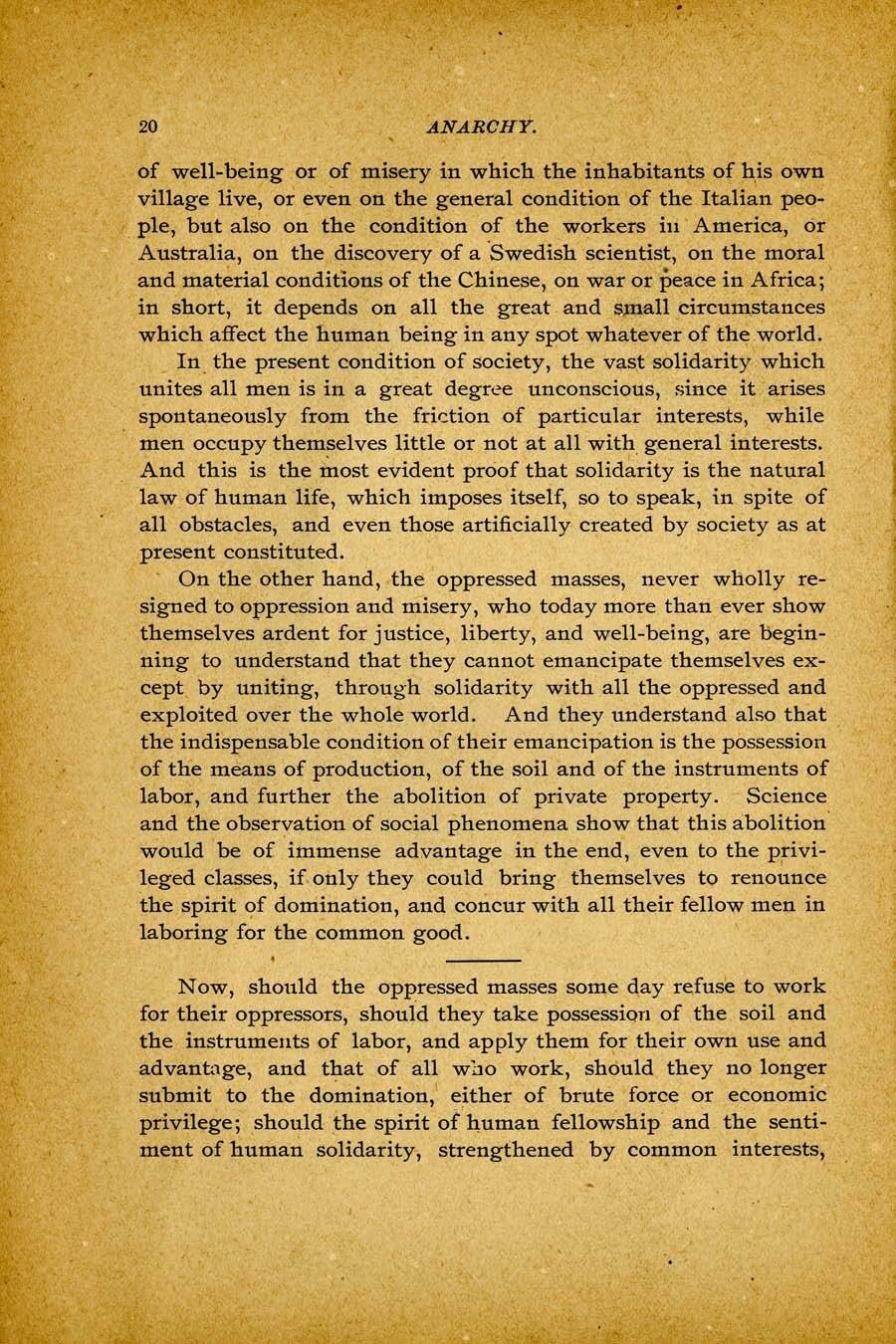of well-being or of misery in which the inhabitants of his own village live, or even on the general condition of the Italian people, but also on the condition of the workers in America, or Australia, on the discovery of a Swedish scientist, on the moral and material conditions of the Chinese, on war or peace in Africa; in short, it depends on all the great and small circumstances which affect the human being in any spot whatever of the world.
In the present condition of society, the vast solidarity which unites all men is in a great degree unconscious, since it arises spontaneously from the friction of particular interests, while men occupy themselves little or not at all with general interests. And this is the most evident proof that solidarity is the natural law of human life, which imposes itself, so to speak, in spite of all obstacles, and even those artificially created by society as at present constituted.
On the other hand, the oppressed masses, never wholly resigned to oppression and misery, who today more than ever show themselves ardent for justice, liberty, and well-being, are beginning to understand that they cannot emancipate themselves except by uniting, through solidarity with all the oppressed and exploited over the whole world. And they understand also that the indispensable condition of their emancipation is the possession of the means of production, of the soil and of the instruments of labor, and further the abolition of private property. Science and the observation of social phenomena show that this abolition would be of immense advantage in the end, even to the privileged classes, if only they could bring themselves to renounce the spirit of domination, and concur with all their fellow men in laboring for the common good.
Now, should the oppressed masses some day re,fuse to work for their oppressors, should they take possession of the soil and the instruments of labor, and apply them for their own use and advantage, and that of all who work, should they no longer submit to the domination, either of brute force or economic privilege; should the spirit of human fellowship and the sentiment of human solidarity, strengthened by common interests,
